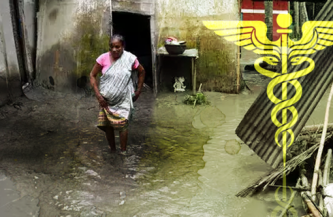Case Study: MyGov enabling participative decision making – Budget 2015

Noted social activist Michael Moore was at his pithiest best while summing up the essence of democracy: “Democracy is not a spectator sport, it’s a participatory event. If we don’t participate in it, it ceases to be a democracy.”
While commentators have, over the centuries, debated the multiple benefits of democracy over other forms of governance, it is its participatory nature that has almost unanimously been recognised as the most outstanding feature. Democracy, in its normative form, while electing a leader through a transparent process, expects that leadership to make decision making a participative process where citizens have an important pro-active voice in policy making. But what is it about participative leadership that makes it so attractive?
First, involvement in decision-making improves the understanding of the issues involved by those who must carry out the decisions. This means the actual effect of the policy is factored in at the stage of policy making itself thereby insulating it from remaining a mere academic exercise. Second, people are more committed to the actions flowing from the policy where they have been involved in the relevant decision-making. The citizens, who will actually be affected by the policy, have become a stake holder in the policy so framed rather than it being handed top down, and thus have more stakes in making the policy work. Third, people are less competitive and more collaborative when they are working on joint goals. Fourth, when people make decisions together, the social commitment to one another is greater and thus increases their commitment to the decision.
Mahatma Gandhi, one of the greatest personalities of twentieth century, was among the first to understand the power of such participative decision making process to mobilize public opinion and this is what contributed to his enormous achievement of converting the freedom movement into a mass movement. Prime Minister Narendra Modi, inspired by the great Mahatma, has often spoken of learning from this great heritage and deploying it in modern context of converting the development and governance paradigm into a mass movement.
It is with this ambition that MyGov was launched by the Prime Minister on 26th July 2014 as a citizen online engagement platform. The avowed aim of the platform was to achieve the following purposes: A) Pro-active citizen participation in policy making; B) Citizen participation in governance tasks; and C) Volunteer participation to achieve synergy in the ideas and discussions in online world with action on the ground.
One of the conscious decisions taken during the conception stage of MyGov platform was to have no activity on MyGov without a buy-in by a relevant department or ministry of the government of India. This was done to ensure that all discussions and tasks on MyGov would have a defined closure point and therefore the valuable time that citizens spend on MyGov would be tied up with a clearly defined proposed action of the government. This way, MyGov would become a useful platform for citizens, retaining the flavour of a free flowing online general discussion forum, while avoiding the trap of only remaining a discussion forum.
This conceptual clarity at the level of the head of government, with a clearly defined mandate to ministries and departments to factor-in the citizen suggestions in discussions and tasks they have initiated on MyGov, in the eventual policy, program or schemes they frame, has resulted in much success for MyGov since its launch. The names of the very popular Pradhan Mantri Jan-Dhan Yojana and the now ubiquitous logo for the Swachh Bharat Abhiyan were generated by contributors on MyGov. The Prime Minister himself has used the MyGov platform to regularly source citizens’ ideas and aspirations for his very popular, monthly “Mann ki Baat” dialogue with citizens.
The confidence generated by these early successes encouraged both ministries and the citizens to engage in crowd sourcing for even broader participation. The Ministry of Railways and the Ministry of Finance, thus initiated discussions seeking ideas from citizens for consideration for the Railway Budget and the General Budget respectively. In what was clearly a first, crowd sourced ideas from citizens, generated on MyGov, became actual government proposals in the respective budgets for the year 2015-16. The implications of a direct platform for citizens, where they could articulate their aspirations and needs to the government, without any intermediary or middlemen, can be seen in some of the far reaching ideas that became actual budget proposals.
For the Railway Budget, suggestions that have been incorporated in the actual proposals include proposals to fit bio-toilets and vacuum toilets in rail coaches to improve cleanliness; providing concessional e-tickets to differently-abled passengers; provision to order food online at the time of booking of tickets through IRCTC; integrating popular private food chains with the pantry network of railways; installation of digital display networks on platforms to provide real time information to citizens and the involvement of ISRO for providing audio-visual warnings to passengers at unmanned level crossings by using geo-spatial technology. A more detailed description of MyGov user suggestions reflected as actual proposals can be read here.
In the General Budget for 2015-16, some of the innovative proposals that have been incorporated include the proposal to enable monetization of gold and launching of sovereign gold bonds; proposal to abolish wealth tax and simplify tax structures; special tax incentive for promotion of Yoga; proposal to make sharing of PAN number mandatory for cash transactions above a specified value; 100% tax benefit for contributions to Swachh Bharat fund; utilization of vast postal network for improving access to banking in remotest corners of India and the proposal to introduce a law to penalize non disclosure of foreign bank accounts and to tackle benami property holdings in India. A more detailed description of MyGov user suggestions reflected as actual proposals can be read here.
These suggestions were thought of by the citizens themselves. They are aspirational in nature in some cases and practical in others. A gold monetization scheme can have transformational affect on the economy. Integrating of popular food chains with rail pantry network and simultaneously enabling the citizens to order food online would, while appearing as simple suggestions, enormously change the passenger experience for those who are travelling by rail network.
The implications of such participative decision making process are enormous. Development as a paradigm of general national discourse is a rather abstruse concept. However, if the broad long term governance framework can be converted into an easily identifiable specific time bound programs, with which the citizen can identify themselves in the immediate term, then it is easier to weave it into the national fabric. The General budget each year is an important policy document of the government, detailing the framework by which the government intends to manage the economy in the medium to long term. However, what is in it for me in the next budget is the most pertinent question by citizens in the build up to each year’s budget. The art of socially and emotionally investing the people in the governance paradigm is to somehow interlink these two strains. With MyGov platform acting a bridge, the citizen now has not to wait till the end of budget process to find out what is in it for them but can pro-actively help in deciding what do they want from the budget. One simple exercise of participative decision making and the budget becomes not a government’s document alone but a document of the people. The emotional commitment gets built-in and the abstruse development paradigm is on its way to becoming a participative mass movement. The platform that is enabling this is the MyGov platform, translating the vision of Prime Minister Narendra Modi into a reality.
Total Comments - 103
Leave a Reply
You must be logged in to post a comment.





 Login
Login
This is with reference to KYC documents to be submitted every 2 years, despite having all the details in the system I wonder why it is not possible to give prefilled form for the same. This is the clear example of laborious activity and how not to use the resources and get the process delayed.
I request you to please take some actions on mentioned issue or please start online process for the same.
Sir.. I have been thinking about this idea for a while to improve India’s economic condition..Please review this..Why cant we talk to Temples, mosques and churches and bring in a system level change to utilize the funds from these religious scared places to do good for the poor people in our country? There are plenty of money that we could use to get rid of poverty in our country but strong system has to be in place to ensure transparency and reach to the poor person of this country!
Sir,If you can do Zakat (muslim spend 2.5% of their surplus money on poor).this is huge money going in un orgnizer charity or non needy some time. If you can make it tax free there will be huge money in system.
sir, why don’t we one chapter in higher secondary course material/college material related to road traffic safety rules and implications. As of now, it is not relevant at all and required only when you go for applying driving license.
Dear PM
I have an idea to control inflaton as well as govt money.
When ever we are coming with new bypass and highways nearby any city , investors and builders buy the Agriculture land and wait till the land price shoots upto 10 folds , If we can make maximum elevated roads above available highways and roads , we will save huge money for farmer compensation for acquisition of Agriculture land, land cost will be under control ,save numbers of formalities, thanks
How to ensure immediate and proper medical treatment in case of emergency (particularly road accidents) in Government Hospitals? And why isnt the process of taking the victims to the hospital from the accident spot fast enough even in remote locations?
MoF, Sir/Madam: Why are we giving tax benefits to FII/NRI for investing in derivative insturments. F&O instruments are not subject to delivery and gains are purely speculative. These instruments do not add any value to nation building as they are short term funds. Only funds which are invested for more than 1 years should be eligible for tax rebate. In tax treaties, definition of capital gains needs to be replaced with "Long Term Capitla Gains" to resolve this plight of money outside India.
Honebel P.M.
I am a new janration farmer from SATARA/MAHARASTRA.We request to please make a one roof information of CENTRAL GOV.(all department) & STATE GOV.(all department) full information of schemes or subsides. such as 1)scheme name 2)who is participate this scheme 3)if any problem which officer help you 4)which document need to you.
Thank You
Respected Modi ji; You usually appeal all financially sound people to give up LPG subsidy so that this money could be utilized for poor peoples bread and butter.Will you like to appeal all MP’s and politicians to give up subsidy over meal in canteen of parliament?Do you think these MP’s are poorer than weaker sections of society?They really need LPG subsidy;subsidy in canteen;free residence and free travel and phone calls?And still they are called public servant.What is this mockery of democracy
Respected Mr. Modi Sir,
Please announce OROP i.e. One Rank One Pension for ex-servicemen in todays Man Ki Baat. It will go a very long way boosting the morale of the ex-servicemen and also the serving personnel.